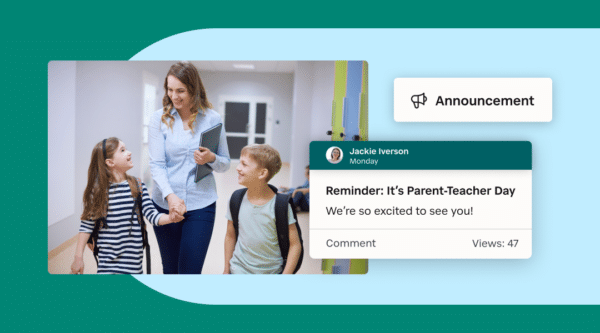

Effective family engagement is crucial for student success. When families are involved, it improves academic performance, strengthens school communities, and fosters student confidence. According to research, students with engaged families tend to perform better academically, demonstrate positive behavior, and feel more supported.
However, with today’s busy, tech-driven world, many schools face challenges in keeping families engaged. Here are seven actionable strategies to foster stronger school-family connections, tailored for today’s communication landscape.
Why Family Engagement Matters
Family engagement is one of the strongest predictors of student success. Engaged families contribute to better outcomes, such as:
- Improved academic performance
- Increased homework completion
- Higher self-esteem and social skills
- Better cultural understanding between home and school
- Higher graduation rates and lower special education placements
The digital age has introduced many tools to bridge the gap between schools and families. Here’s how you can leverage these tools, alongside traditional methods, to increase family involvement:
1. Use Video Tutorials for Parent Support
Posting video tutorials on your school’s website can help parents support their child’s learning. Videos can cover homework tips, study techniques, or walk families through school processes. This is an accessible way to equip families with the tools to assist their children at home.
Tip: Embed videos directly on your school’s website or share them via social media to increase visibility.
2. Keep an Updated Online Calendar
Outdated information often makes families feel out of the loop. Ensure your school website features a current calendar of events, synchronized with your school’s app and social media channels. This keeps families informed and reduces the need to search for updates.
Check out our School Communications Planning Guide to streamline your communication.
3. Engage Families on Social Media
With many families active on platforms like Facebook and Instagram, social media offers a direct way to connect. Use these channels to share news, celebrate achievements, and remind families of upcoming events. Link posts back to your school’s website or app for more information, and consider establishing a clear social media policy for consistency.
4. Schedule In-Person Meetings
Face-to-face meetings build trust and allow for more meaningful exchanges. Regular parent-teacher conferences, open houses, or even home visits foster connections and demonstrate a shared commitment to student success.
5. Host Family-Centered Events
Organize casual events like family nights or open houses. These allow families to see the school environment and engage in relaxed conversations, encouraging deeper involvement without the pressure of formal meetings.
6. Offer Flexible Volunteer Opportunities
Flexible volunteer options empower families to participate in ways that work with their schedules. From event assistance to joining the parent advisory council, providing a range of opportunities makes it easier for families to contribute.
7. Utilize a School Mobile App
In today’s mobile-first world, a school app is essential. Ensure your app integrates with your website, calendar, and other communication tools. A user-friendly app with real-time updates keeps families engaged and informed on-the-go.
Explore the benefits of our school mobile app for seamless communication.
Your Communication Hub
A well-maintained website serves as the central hub for family engagement, offering calendars, blogs, volunteer sign-ups, and video resources. When paired with a school app and active social media presence, this approach ensures all families stay informed and connected.
For more resources on boosting family engagement, check out our School Communications Planning Guide.
Start building a stronger school community today with these practical strategies!
Stay Connected
News, articles, and tips for meeting your district’s goals—delivered to your inbox.





